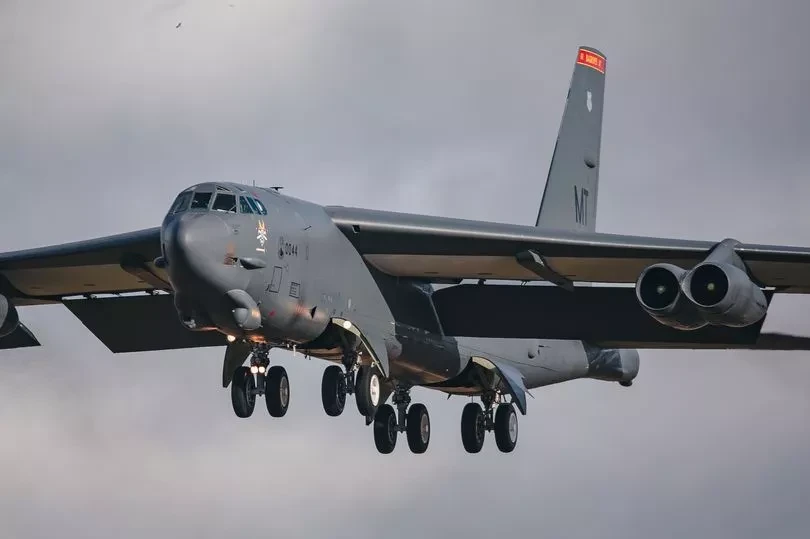NATO considers increasing nuclear weapons deployment amid rising threats
 A B52 Stratofortress in the Bomber Task Force, arriving at RAF Fairford on a previous deployment, Feb. 10, 2022.
A B52 Stratofortress in the Bomber Task Force, arriving at RAF Fairford on a previous deployment, Feb. 10, 2022.
NATO is actively discussing the deployment of additional nuclear weapons in response to escalating threats from Russia and China, according to Jens Stoltenberg, the head of the alliance.
In an interview with The Telegraph, Stoltenberg emphasized the necessity of showcasing NATO’s nuclear capabilities to deter adversaries effectively.
Nuclear strategy and transparency
Stoltenberg disclosed ongoing consultations among NATO members regarding the readiness of nuclear missiles. He stressed the importance of transparency in nuclear strategy to strengthen NATO’s deterrence posture.
“I won’t go into operational details about how many nuclear warheads should be operational and which should be stored, but we need to consult on these issues. That’s exactly what we’re doing at NATO,” Stoltenberg stated.
Growing geopolitical threats
The NATO chief issued a stark warning about the increasing threats posed by China and Russia. He noted China’s significant investment in modern weaponry, including a projected increase in its nuclear arsenal to 1,000 warheads by 2030.
“In a not-very-distant future, NATO may face something it has never faced before, and that is two nuclear-powered potential adversaries – China and Russia,” Stoltenberg said, highlighting the strategic implications for the alliance.
Alliance solidarity and modernization
Stoltenberg praised NATO allies, including The Netherlands, for their contributions to the alliance’s nuclear deterrent. He pointed out that transparency helps communicate NATO’s nuclear stance to the world.
“NATO’s aim is, of course, a world without nuclear weapons, but as long as nuclear weapons exist, we will remain a nuclear alliance,” he affirmed.
The NATO chief also underscored the importance of modernizing nuclear capabilities in response to increased threats from Russia.
He mentioned the U.S.’ efforts to upgrade nuclear warheads in Europe and European allies’ investments in aircraft dedicated to NATO’s nuclear missions. The U.K., with its independent nuclear arsenal, plays a unique role in the alliance’s deterrence strategy.
Political and strategic implications
Stoltenberg’s comments come in the wake of heightened criticism from the G7 toward China and Russia. The communique urged Beijing to halt its military support for Moscow and condemned China’s militarization in the Pacific.
Despite political uncertainties in member states, Stoltenberg expressed confidence in continued support for NATO’s strategic objectives.



